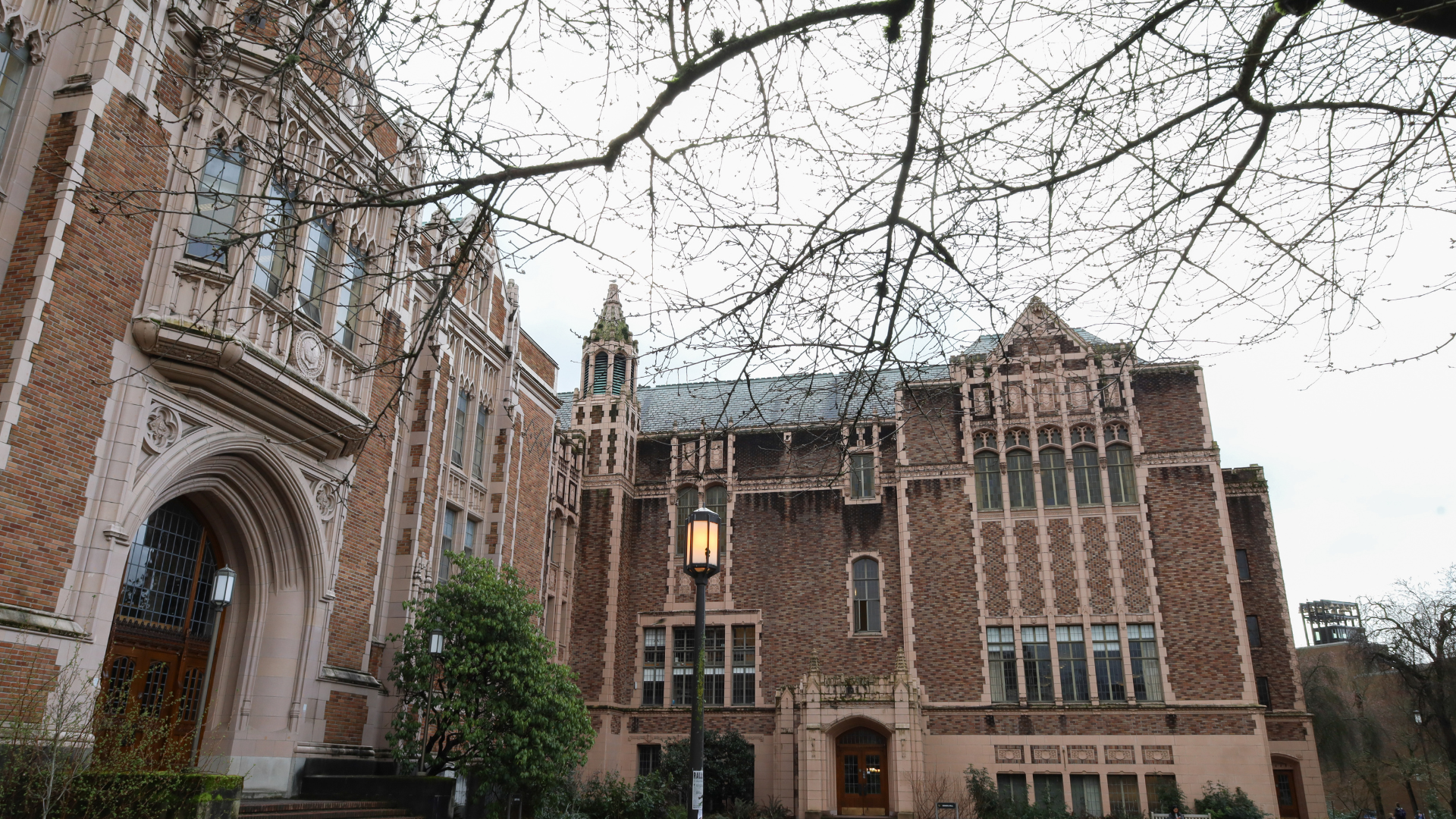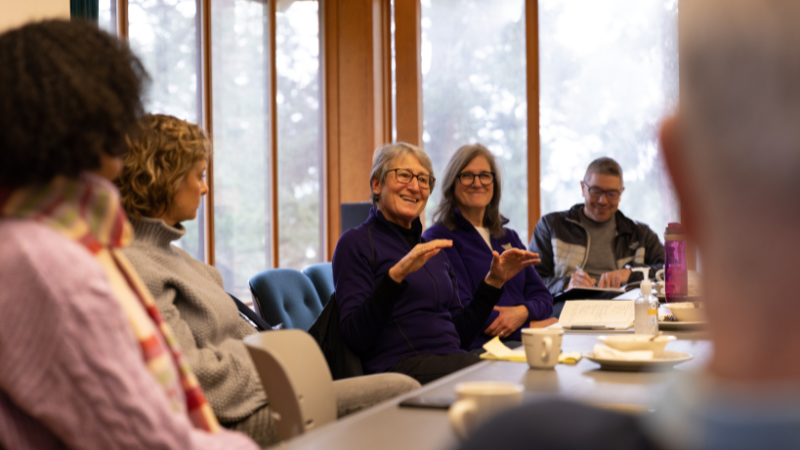
Dear Colleagues,
February may be the shortest month of the year, but it was very busy, especially for our College of Arts & Sciences Rethinking the Academy initiative. We were grateful to have an extra, 29th day this year since all aspects of the initiative were activated. Our Futurists met for their second retreat, we gathered for our second annual “Big Read,” and a group of Dean's Academy Fellows met for our first-ever problem-solving charrette. We also distributed pocket-sized cards to all the departments (if you haven’t already received one, you soon will) printed with the “Guiding Principles” we adopted in the dean’s office that serve as an important underpinning for all this work. In short, the initiative is in full swing, and I’m pleased to share a brief overview with you so you’ll have a sense of where things are, where we are headed, and how you might become involved.
Dean’s Academy Futurists
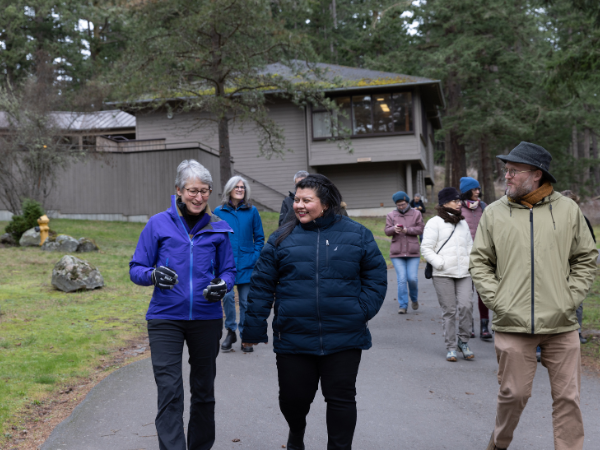
In early February, our group of eleven faculty Futurists met for their second retreat of the academic year. For three days, we gathered at Friday Harbor Labs to continue our efforts to creatively imagine the future of a liberal arts education after 2050. On the first full day of the retreat, we were joined by Sally Jewell, a UW alum and former UW Regent who served as the CEO of the REI company (2005-2013) and as Secretary of the Interior in the Obama administration. In both roles, Sally was called upon to lead with the future constantly in mind. As she puts it, leading the Department of the Interior demanded futurist thinking because she was “in the forever business,” ensuring that the nation’s lands remain healthy for generations to come. Sally prompted us to think about how change can be empowering: something both seen and experienced as positive. She challenged us to consider what she calls “waterline analysis,” looking below the surface to understand the mental models that drive belief and cause resistance to innovation. Through a series of exercises, we pushed ourselves to consider what we want to migrate away from as we move towards 2050, to think about the things we fear when we look to the future, and to consider what we want to migrate towards and what we want to carry forward with us.
As a group, we are developing new modes of intellectual endurance so that when we stretch our brains to do future-horizon thinking, we can sustain that creative work without having our minds quickly snap back to the problems and conditions of the present, just as we are also working to expand our vocabularies to describe a future we don’t yet know. This is not easy. It requires trust, a willingness to experiment, a continued suspension of cynicism, and the extended ability to lift ourselves up and out of our departmental and disciplinary concerns. Together, we have begun developing a futurist mindset, which is very exciting.
The Big Read
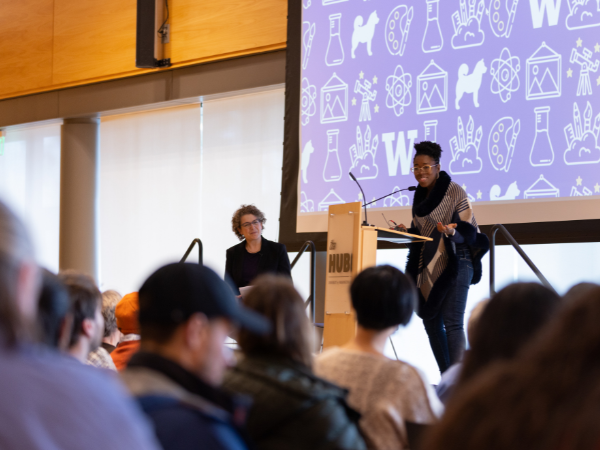
On February 20th, we welcomed Dr. Joy Buolamwini from MIT’s Media Lab and the author of this year’s “Big Read” selection, Unmasking AI: My Mission to Protect What is Human in an Age of Machines. Thanks to Dr. Buolamwini’s generosity—she donated her honorarium back to us so that we could purchase more books to give away on a first-come-first-served basis—we provided 400 free copies to students, staff, and faculty. An audience of nearly 300 attended to listen to Dr. Buolamwini in conversation with Dr. Emily Bender from our Department of Linguistics. Together, they helped us see a pathway towards a more ethical tech future that centers social justice. They showed us the unexpected alignments of poetry and the spoken word with the complex computational present and future. As we consider the future of the academy we want and need, I can think of no better prompt than Dr. Buolamwini’s brilliant and captivating book. I’m very grateful for her generosity and the model she provides through her work with the Algorithmic Justice League. The recording of the discussion will be available soon.
Design Charrettes
Just a few days later, twelve Arts & Sciences faculty—all current or former department chairs—gathered for an eight-hour charrette (a creative, problem-solving workshop that takes place in a very compressed time period) that focused on finding ways to make the work of being a department chair more meaningful and better supported. This problem was identified last year by faculty who participated in the HumetricsHSS workshop as a priority that required more immediate attention. With support from members of my office, including Divisional Deans Pollack, Reed, Solis, and Woody, Associate Dean for Undergraduate Education Kevin Mihata, and our Manager of Special Projects and Strategic Initiatives Greta Essig, the group rolled up their sleeves and tackled the problem. By the end of the day, they had generated a set of action items that we will now move to implement. These included the creation of a handbook for new chairs to reference, a paperwork audit intended to minimize unnecessary labor, and the development of better succession plans and mentorship models. I’m very grateful to the twelve participants, all designated as Dean's Academy Fellows. They approached the charrette with generosity and a commitment to the common good and the future well-being of all who find themselves in this most important service role.
The next all-day charrette, focusing on mentorship and collaboration, will be held on Friday, April 12 in HUB Room 337. A key finding of the 2022-23 CAS EJI climate survey was the need for the college to facilitate the building of supportive communities among faculty and staff. At the event, we will concentrate on better understanding the types of mentorship faculty are looking for, what barriers might be preventing more mentorship across the college, and what programs we can implement to facilitate these relationships. This charrette is open to all CAS faculty members. There will be future opportunities for staff and graduate students to discuss mentorship. If you would like to participate, please register here.
As I made introductory remarks at a recent public event... I quoted my friend William “Bro” Adams, former Chairman of the National Endowment for the Humanities who once said, 'We must keep the aperture of purpose and possibility open in higher education.'
Looking Forward
As we move towards the conclusion of Winter quarter, all this important, creative work gives me tremendous hope. The level of commitment and care demonstrated by everyone who participates in these activities—whether in the Big Read, a charrette, or as a Futurist (we will be calling for nominations again in the weeks ahead) or simply by expressing an interest in these activities and discussing them with colleagues across the college and the university—is truly energizing. To reflect again on two of our dean’s office Guiding Principles, this work is indeed joyful, and it reminds us why we are here.
As I made introductory remarks at a recent public event that was part of the Jackson School’s series on “War in the Middle East,” I quoted my friend William “Bro” Adams, former Chairman of the National Endowment for the Humanities who once said, “We must keep the aperture of purpose and possibility open in higher education.” There is no question that we will face new and continuing challenges in the months and years ahead, including forces that may wish to narrow that aperture. That reality makes plain the requirement for us to do the kind of creative work together that the Rethinking the Academy initiative permits. Collectively, it is our job to keep that aperture open so that education and the production of new knowledge continue to light up the world. There is also no question that our college—and the University of Washington—employs some of the best and brightest faculty and staff to be found. I can’t think of any place I’d rather be than here, with all of you, engaging in this important work together.
Thank you for all you do. I am truly grateful.
With best wishes,
Dianne
More Stories
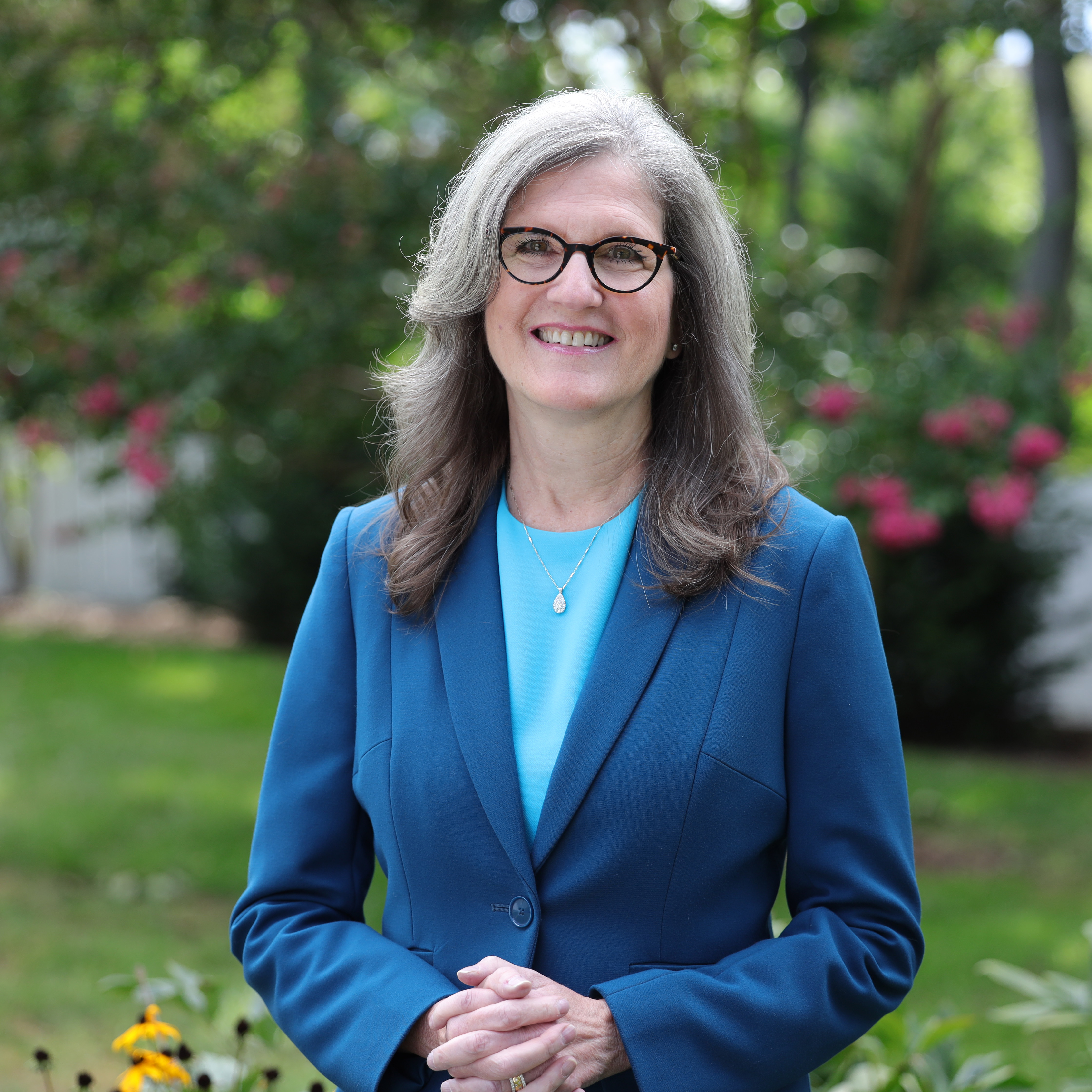
From the Dean
Dianne Harris reflects on her first six months as dean, and the “dedication to excellence and deep veins of creativity” she has found throughout the College of Arts & Sciences.
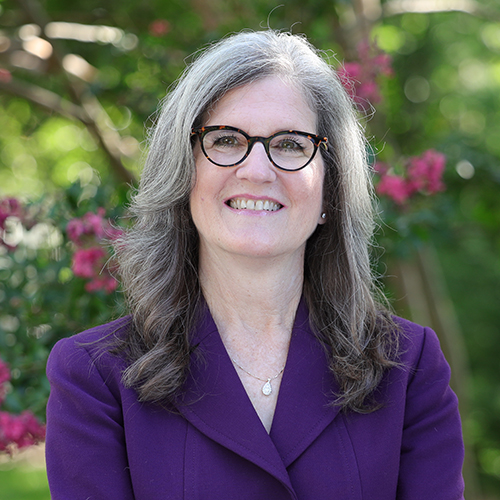
New Dean, New Perspectives
A conversation with Dianne Harris, new dean of the UW College of Arts & Sciences.
